- Home
- Linwood Barclay
Too Close to Home Page 16
Too Close to Home Read online
Page 16
“I don’t even know if it was that,” Derek said. “They were really weird. Then Mr. Tucker comes to the door and tells me to move along.”
“‘Move along’?” I said. “That’s what he said? ‘Move along’?”
“And I’m leaving and I see Penny up in her bedroom window, you know? And I look up there and give her this shrug, right?” He demonstrated. “Figuring she’d do that, too, like she was sorry her parents were being such assholes, but she doesn’t do anything, she just looks at me, and then her mom shows up at the window and pulls her away.”
“I’m going to call them,” Ellen said.
Almost in unison, Derek and I said, “No.” Derek added, “Jesus, no, don’t do that.”
“Let’s let it go for now,” I said. “We’ve got enough on our plates. We hardly need to get into a fight with Penny’s family.”
“They have no right to treat Derek that way,” Ellen said, looking as though she wanted to hit something. If there’d been another wineglass handy, I think she’d have thrown it against the house, too. Suddenly, she threw up her hands. “I can’t deal with this,” she said, and went back into the house.
I stood out there with Derek, put a hand on his shoulder. He shook it off.
“What?” I said. “What are you pissed with me for?”
“I don’t know,” he said. “I’m sorry. I’m just, fuck, I’m just so mad.”
I waited a few seconds. “Okay,” I said. “I can understand that. But everyone, not just us, but everyone even remotely connected to this, everyone’s feeling it. People are scared. Somebody killed the Langleys, and people are scared about what’s going to happen next. The Tuckers, they’re probably scared, you’re scared, your mom is scared, I’m scared.”
He took a few breaths. “I know,” he said. “I know.”
“You okay?” I asked. “Because I need to ask you something.”
“What about?”
“The computer.”
He looked at me, as though he’d already forgotten about the computer, even though it had only been a few hours since he’d filled me in on what he’d found on it. “What about it?”
“After Agnes gave it to you, did you tell anyone you had it? Or what you’d found on it?”
He didn’t need time to think. “No. Nobody. Well, nobody other than Adam.”
“Okay,” I said. “What about Penny? Did you tell her?”
“No, I . . . I don’t think I told her.”
“Are you sure?”
“I mean, I might have told her we found some book on it. But not much more than that.”
“Would she have told anyone?”
“I don’t see why. I mean, she probably didn’t care. I’m always talking about shit Adam and I find on old computers, and I don’t think she’s ever listened before.”
“What about Adam?” I asked him. “Who might he have told?”
“Why? What’s the deal?”
“Derek, figure it out. If—and it’s still a big if—but if someone went into that house for that computer, they had to know it was there. So do you think Adam told anybody about it?”
“I don’t think so. Except for his dad. Like I told you, he said his dad was upset about it.”
Albert Langley. Lawyer for, among others, Conrad Chase.
“Would he have done that, you think? I mean, did Adam talk about things with his dad? Does it make sense that he might have said, ‘Hey, you wouldn’t believe what Derek and I found on this computer he got from Agnes Stockwell’? Would he have done something like that?”
Derek gave it some thought. “He might have. I guess. I don’t think he would have told his mom, though. For the same reason I didn’t want to talk to my mom about it. Because of what the book was about.”
I settled into one of the chairs on the deck. My beer was still sitting there, but the bottle was now warm to the touch. Derek took a seat opposite me.
“What?” he asked.
“I don’t know,” I said. “I just don’t know.” I drank some of the warm beer. “I’m so goddamn tired I can’t think.”
Something caught Derek’s eye. I turned and saw him looking at the forensic cops I’d noticed earlier, still examining every blade of grass behind the Langley house. “Why are those guys searching around in the woods like that?” Derek asked. “What are they looking for?”
SEVENTEEN
IT SEEMED AS THOUGH all of Promise Falls showed up for the funeral two days later. St. Peter’s must have easily been able to hold five hundred people, and it was a standing-room-only affair. Albert Langley ran one of the town’s biggest law firms, his wife, Donna, was one of Promise Falls’s most recognized power spouses, and their son, Adam, if not the most popular kid at his high school, was at least well liked. That produced a pretty big pool of friends, acquaintances, and associates to draw from.
Not to mention family.
There was Donna’s sister Heather, and her husband and two children, who’d flown in from Iowa. Albert’s mother, an elderly woman who had moved down to St. Petersburg, had come, accompanied by Albert’s brother Seth, from South Carolina. There were cousins and nephews from across the country, an uncle of Albert’s from Manitoba.
A whole lot of crying.
It was the first funeral Derek had ever been to. In a perfect world, we would have started him out with something smaller, a little less overwhelming than a combined funeral for three people, all taken much too soon in an act of horrific violence.
A funeral for a grandparent, that would have been a good place to start. Ellen’s mother had passed away when he was six, but we’d decided he was too little to attend, that the ceremony would be too upsetting.
We sat together, Ellen and Derek and I, around the middle of the church, off to one side. As close as we were, geographically, to the Langleys, a great many of the people attending the service were more connected to them, and we weren’t interested in sitting up near the front anyway.
Mayor Randall Finley said a few words, and he performed true to form, with an abundance of platitudes and almost convincing expressions of sincerity. “Albert Langley,” he opined, “exemplified what made this community special, through his commitment to his fellow citizens, his pursuit of equality and fairness, his dedication to making Promise Falls a better place.”
No mention of the fact that he often treated his wife like shit, but you couldn’t expect Randy to say something like that in a speech that was clearly a warm-up for his imminent announcement that he was seeking a congressional seat.
There was an unusual amount of whispering going through the church about three-quarters of the way through the service, and not just because Finley had gone on too long. Some story, a rumor, we didn’t know what, at least not until it spread to our row.
A woman sitting to my right whom I did not know had just been told something by a man I took to be her husband sitting on the other side of her.
“No,” she whispered. “Oh my.”
I leaned in a bit closer to her and whispered, “What’s happened?”
“A man took his own life,” she said. “Someone the police wanted to question.”
“Who?”
“The police came to the house to interview him and he killed himself.”
“Who was it?”
“I don’t know the name. He had something to do with that case of Albert’s, where he got the boy off.”
Now Ellen was nudging me in the ribs. I whispered to her what I’d heard. “Who?” she asked. I shook my head. We’d have to wait for the service to end to learn anything more.
Once it was concluded, and mourners started spilling out of the church, the women dabbing their eyes with tissues, the men trying to be stoic, everyone started quizzing one another, trying to learn more.
I saw Donna’s sister Heather, whom I recognized from the times she and her family had come to Promise Falls to visit.
She was standing with her husband, Edward, when I approached, with Ellen and Derek flan
king me. It took her a second to realize who I was.
Ellen said, “We’re so sorry.”
Heather nodded, and said, “Have you heard?”
“We’ve heard something,” I said. “But just bits and pieces.”
“I was speaking with Detective Duckworth,” she said. I had spotted him in the crowd earlier. “They went to speak with a man, his name was Colin McKindrick.”
Of course, I thought. The man whose son had been beaten to death with a baseball bat by Anthony Colapinto.
“Yes?” I said.
“And when they were knocking on the door, saying they wanted to talk to him about the threats he’d made to Albert, he told them to go away, told them he’d shoot if they came in. And then, a minute later, a gun went off in the house, and when they went in, Mr. McKindrick was dead.” Heather put her hand over her mouth, overcome. “He’d shot himself in the head.” Edward put his arm around her and held her close.
“Dear God,” I said.
Edward asked me, “Who’s this McKindrick?”
“McKindrick had said something to Albert, that he’d get even with him, or something along those lines, when the boy who’d been charged in his son’s death was acquitted. Albert persuaded the jury that the Colapinto boy had acted in self-defense.”
Heather shook her head, overwhelmed by the enormity of it all.
Ellen reached out and touched Heather’s arm. “Again, we’re so sorry. We’ll let you go.” Our signal to move on.
Once we had moved away, Ellen said, “What do you make of that?”
“I don’t know,” I said. “Has to make you wonder.”
“Maybe it’s over.”
“Could be,” I said.
“They come to the man’s house, want to ask him about Albert, and then he kills himself?”
“What?” asked Derek. “So they think he must have killed Adam and his parents?”
“Police come to your door, want to ask you about these murders, you take your own life, looks kind of incriminating,” Ellen said. “He must have been so torn apart. Losing a son, then, if he did kill the Langleys, dealing with the guilt.”
I still didn’t know what to think. Ellen continued, “Bad enough you kill the lawyer for keeping the guy who killed your kid out of jail, but why his wife and son? Maybe that was part of the deal. He lost his son, he figured he’d take away Albert’s, and his wife, too.”
As tragic as the news was, it had the effect of a weight being lifted off our shoulders. If there was any truth to the conclusions we were jumping to, it meant maybe I’d be able to let this business of Conrad and the computer go.
Ellen shook her head sadly. Derek, looking very uncomfortable in his suit and tie on this very warm day, said, “I just want to go home.”
I did, too. We turned to head for the parking lot, and standing there in front of us were Conrad Chase, his wife, Illeana, and a woman I did not recognize. Thin, silver hair, early sixties, makeup that struck me as a bit overdone, understated but expensive-looking earrings and a large rock on one of her fingers. Her cream slacks and red silk blouse were casually elegant. A little too nice for everyday wear, but not quite subdued enough for a funeral service.
“Jim, Ellen,” Conrad said, a little more pleasantly than I might have expected, given the exchange we’d had the last time we’d seen each other. He gave a nod to our son, and added, “Derek.”
“Conrad, Illeana,” I said. I turned to the silver-haired woman. “I don’t believe we’ve met.”
“Elizabeth Hunt,” she said.
“Jim Cutter,” I said. “And this is my wife, Ellen, and our son, Derek.”
“Pleased,” she said. “I understand that was quite a moving service they just had in there.”
“Elizabeth is just meeting us for lunch,” Conrad explained. “She drove in from her place on the lake.” He paused, then, “Elizabeth is my literary agent.” He said this like he was telling me he had a new car.
“Well,” I said. “That’s great.”
“It was just so sad in there,” Conrad commented, nodding in the direction of the church. “So, so sad.” Conrad’s sorrow, like so many of his emotional expressions, seemed designed for show. “But we all have to move forward in our own ways, isn’t that right?”
There were some general murmurings about how that was true, although not from me.
“Jim,” Conrad said, “Elizabeth here might be able to put you onto some agents who handle artists. What I said the other day, it may not have come out right, but I was sincere.”
“What?” Ellen said. I hadn’t repeated for her, word for word, what Conrad had said to me when we’d had our talk.
“Actually,” said Elizabeth, “I’m afraid I don’t really have that much involvement with—”
“That’s all right,” I said. I had some sympathy for her, getting dragged into Conrad’s shenanigans. “That won’t be necessary.”
Illeana spoke up. “Elizabeth has enough to deal with, prying Conrad’s latest book out of his hands.”
Ellen’s eyes widened. “You’ve finished a book? A new book?”
Conrad feigned modesty. “Well, just about. Elizabeth says there are a number of houses that want to see it.”
“Conrad,” said Elizabeth cautiously. She was clearly uncomfortable having a discussion about this with all of us present.
“That’s wonderful news,” Ellen said in an understated way. “About the book.”
“We should get back,” I said, eager to extricate all of us from this.
But Conrad wasn’t quite ready to let us go. “You heard what happened?” he asked. “What everyone was talking about as we came out?”
“McKindrick,” I said, and Conrad nodded, almost eagerly.
“That’s right,” he said. “News like that, it spreads like wildfire. You can already see what the take on this is going to be. Distraught father sees the boy who killed his son get off, goes after Albert, then takes his own life when he realizes the police are closing in on him.”
“That’s certainly one way it could play out,” I said.
Conrad looked at me. “A minute?” he said.
The two of us stepped away from the others. Quietly, Conrad said to me, “Surely this new development, if it pans out the way I think we all expect it will, puts an end to all your speculation about some damned computer with a copy of my book on it having anything to do with all this.”
I couldn’t think of anything to say. That was okay, because Conrad was always ready to fill the silences.
“You should know that you got Illeana terribly upset. She heard the tail end of those accusations. I’ve told her to put them out of her mind, they’re not worth talking about. But I’m willing to put this behind us, Jim. I’d like to apologize for my outburst at your place. That was uncalled for. But you can understand, a man of my reputation doesn’t take kindly to attempts to cast aspersions upon it.”
“Yeah. Whatever you say, Conrad.”
He smiled and patted me on the shoulder. “Glad we see eye to eye on this, Jim. And to show there’s no hard feelings, I want you and Ellen to be the first, after my agent, to have a copy of my new manuscript.”
“Well, what a gesture.”
“I’d value your opinion. Very much. And I think it may figure largely into Ellen’s handling of the next festival. A new book from me is going to make it a more meaningful celebration.”
“I’m going to rejoin my family, Conrad,” I said, and excused myself.
Maybe Conrad was right. Maybe this whole thing was over. Since I’d had that argument with Conrad and a subsequent one with Ellen, I’d done nothing about the missing computer. A couple of times I’d been about to phone Barry, then held off. I didn’t know that my information meant anything, and I was second-guessing my motives, second-guessing everything. Any action I took could have a lasting impact on Ellen’s job and, no less important, my marriage.
I’d decided to let things cool down for a while, at least until the fune
ral for the Langleys was over.
There was still a good part of the day left, and Derek and I decided that once we were home, we’d change out of our suits, get into our work clothes, and cut a few clients’ yards.
WE WERE DOING A HOUSE on the town’s west side when I noticed Barry’s unmarked car trolling down the street, stopping at the end of the driveway.
Derek had on earmuffs while he used the noisy leaf blower to clear the sidewalk of grass clippings. I tapped him on the shoulder, pointed to Barry when he whirled around. “I’m over there,” I mouthed.
He nodded and kept working.
Barry powered down the passenger window and said, “Hey, Jim, take a ride with me.”
I opened the door, got in, the air-conditioning blasting me in the face. Before I could find the button to power the window back up, Barry had done it.
He let his foot off the brake, took us down the street, slowly, like he had no real destination in mind. “Where we going?” I asked.
“Nowhere in particular,” he said. “I just wanted to be able to talk to you.”
“About what?”
“About you puttin’ it to Donna Langley. You never mentioned that you’d slept with her.”
EIGHTEEN
SHE’D COME OVER because the power had gone off in their house. Donna Langley wanted to know whether we’d lost electricity, too.
I was on a day off from the security firm I’d been working for, for about the last six months, and was using my time to paint some windows—as opposed to actual landscapes—on the side of the house that faced the highway and the Langley house. Derek was at school, in the second grade, and Ellen was at her relatively new job at Thackeray, organizing their first annual literary festival.
I had been toying with the idea of killing myself.
When I was on the ladder, doing a second-story window frame, I thought about whether I’d be able to break my neck, fatally, falling from that distance. It seemed unlikely. An arm or leg, perhaps. A wrist, probably. Even if I could break my neck or back, I’d probably just end up paralyzing rather than killing myself, and what fun would that be? What were the odds I’d get another chance at this if I needed someone to feed me and wipe my ass?

 Chase
Chase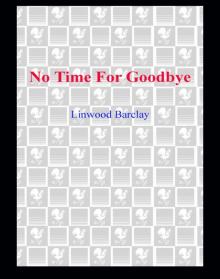 No Time for Goodbye
No Time for Goodbye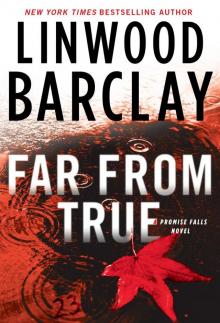 Far From True
Far From True Lone Wolf
Lone Wolf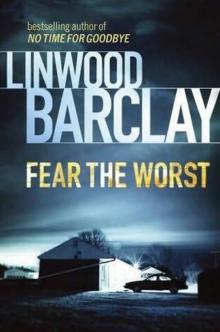 Fear the Worst
Fear the Worst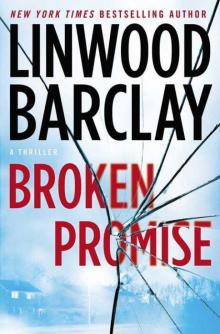 Broken Promise
Broken Promise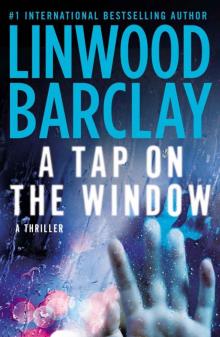 A Tap on the Window
A Tap on the Window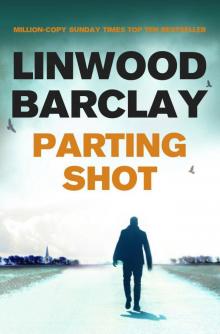 Parting Shot
Parting Shot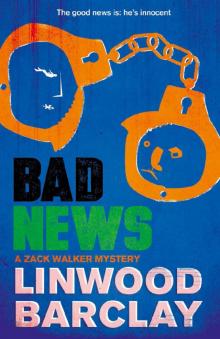 Bad News
Bad News Too Close to Home
Too Close to Home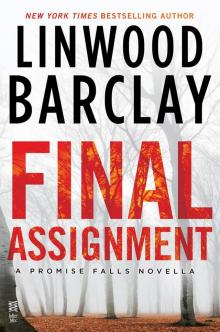 Final Assignment
Final Assignment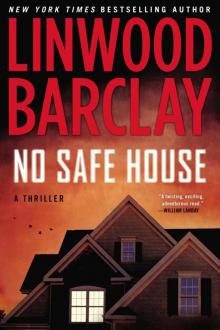 No Safe House
No Safe House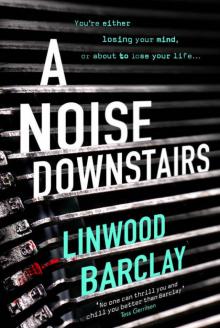 A Noise Downstairs
A Noise Downstairs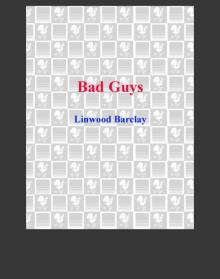 Bad Guys
Bad Guys The Accident
The Accident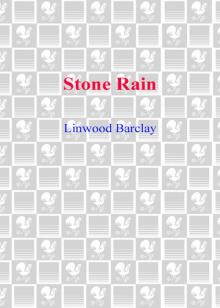 Stone Rain
Stone Rain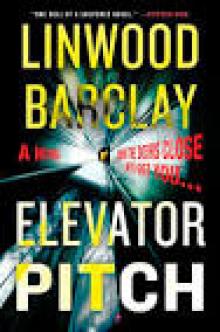 Elevator Pitch
Elevator Pitch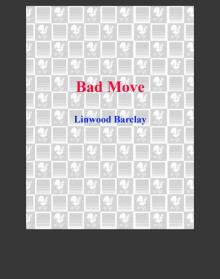 Bad Move
Bad Move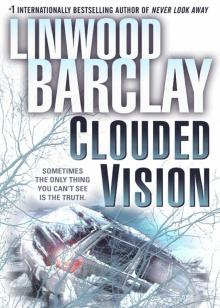 Clouded Vision
Clouded Vision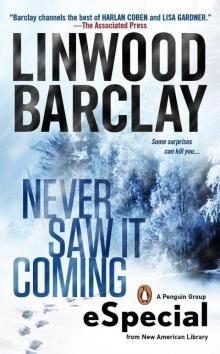 Never Saw It Coming
Never Saw It Coming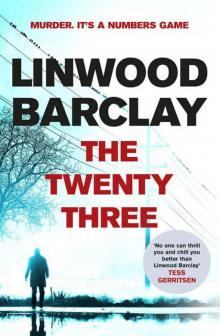 The Twenty-Three
The Twenty-Three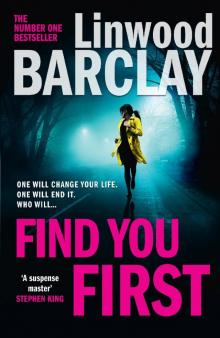 Find You First
Find You First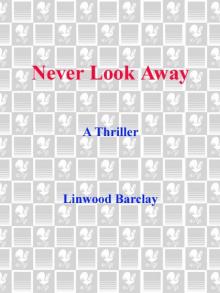 Never Look Away
Never Look Away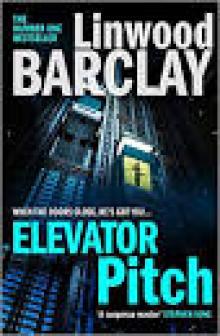 Elevator Pitch (UK)
Elevator Pitch (UK)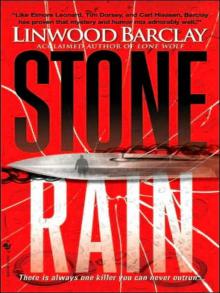 Stone Rain zw-4
Stone Rain zw-4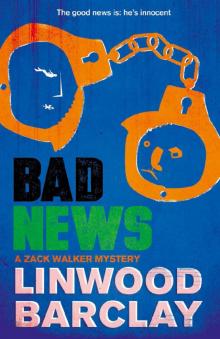 Bad News: A Zack Walker Mystery #4
Bad News: A Zack Walker Mystery #4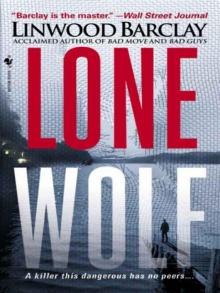 Lone Wolf zw-3
Lone Wolf zw-3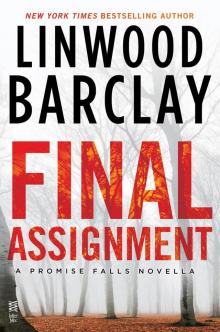 Final Assignment: A Promise Falls Novella
Final Assignment: A Promise Falls Novella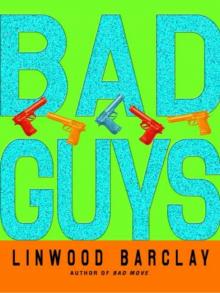 Bad Guys zw-2
Bad Guys zw-2 Never Saw It Coming: (An eSpecial from New American Library)
Never Saw It Coming: (An eSpecial from New American Library)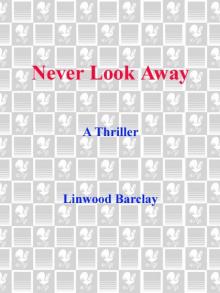 Never Look Away: A Thriller
Never Look Away: A Thriller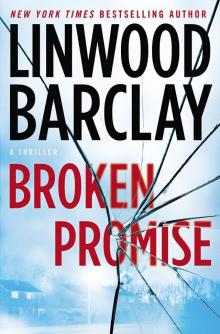 Broken Promise: A Thriller
Broken Promise: A Thriller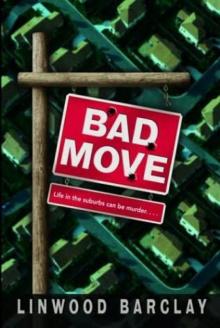 Bad Move zw-1
Bad Move zw-1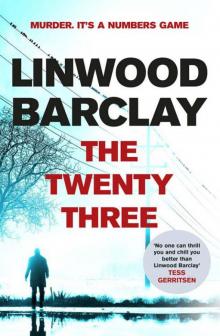 The Twenty-Three 3 (Promise Falls)
The Twenty-Three 3 (Promise Falls)